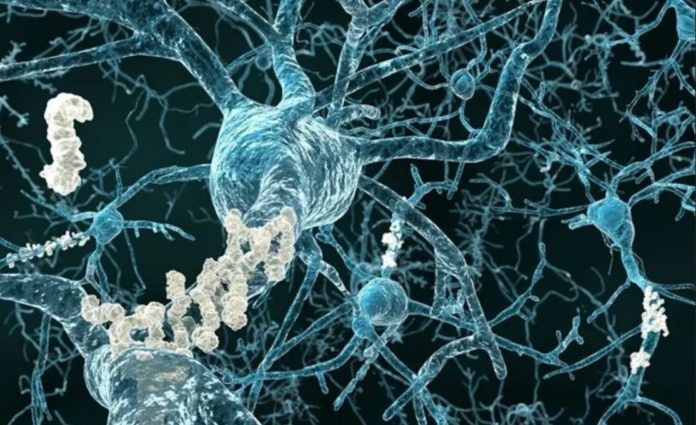The simplicity of the therapy makes it an especially attractive approach that drastically diminishes tau levels in Alzheimer’s animal model and could lead to a potentially promising treatment for patients with this devastating illness.
Researchers have used a genetic engineering strategy to dramatically reduce levels of tau–a key protein that accumulates and becomes tangled in the brain during the development of Alzheimer’s disease–in an animal model of the condition.
- Scientists in Fear of This New Predator From Red Sea Eating Native Species in Mediterranean
- Does This Mean We Stopped Being Animal and Started Being Human Due to ‘Copy Paste’ Errors?
- The One Lifestyle Choice That Could Reduce Your Heart Disease Risk By More Than 22%
- Aging: This Is What Happens Inside Your Body Right After Exercise
- Immune-Boosting Drink that Mimics Fasting to Reduce Fat – Scientists ‘Were Surprised’ By New Findings
As described in Science Advances, the strategy involves a gene regulation technology called zinc finger protein transcription factors (ZFP-TFs), which are DNA-binding proteins that can be harnessed to target and affect the expression of specified genes.
In this case, the therapy was designed to target and silence the expression of the gene that codes for tau. Mice with Alzheimer’s disease received a single injection of the treatment–which employed a harmless virus to deliver the ZFP-TFs to cells–directly into the hippocampus region of the brain or intravenously into a blood vessel.
Treatment with ZFP-TFs reduced tau protein levels in the brain by 50% to 80% out to 11 months, the longest time point studied. Importantly, the therapy reversed some of the Alzheimer’s-related damage that was present in the animals’ brain cells.
“The technology worked just the way we had hoped–reducing tau substantially for as long as we looked, causing no side effects that we could see even over many, many months, and improving the pathological changes in the brains of the animals,” said senior author Bradley Hyman, MD, PhD, who directs the Alzheimer’s disease research unit at the MassGeneral Institute for Neurodegenerative Disease. “This suggests a plan forward to try to help patients.”
The simplicity of the therapy makes it an especially attractive approach. “This was the result of a single treatment of gene regulation therapy, which could be given by an injection into the bloodstream,” says Hyman. “While this therapy is far from patients–as much more development and safety testing would need to be done–it is a promising and exciting first step.”
- Scientists in Fear of This New Predator From Red Sea Eating Native Species in Mediterranean
- Does This Mean We Stopped Being Animal and Started Being Human Due to ‘Copy Paste’ Errors?
- The One Lifestyle Choice That Could Reduce Your Heart Disease Risk By More Than 22%
- Aging: This Is What Happens Inside Your Body Right After Exercise
- Immune-Boosting Drink that Mimics Fasting to Reduce Fat – Scientists ‘Were Surprised’ By New Findings
The study was primarily supported by Sangamo, pursuant to a sponsored research agreement with MGH. Funding was also provided by MGH and the German Center for Neurodegenerative Diseases (DZNE) of the Helmholtz Foundation, the JPB Foundation, the National Institute on Aging, and the BrightFocus Foundation.
Source: Massachusetts General Hospital
Journal reference:
Wegmann, S., et al. (2021) Persistent repression of tau in the brain using engineered zinc finger protein transcription factors. Science Advances. doi.org/10.1126/sciadv.abe1611.
